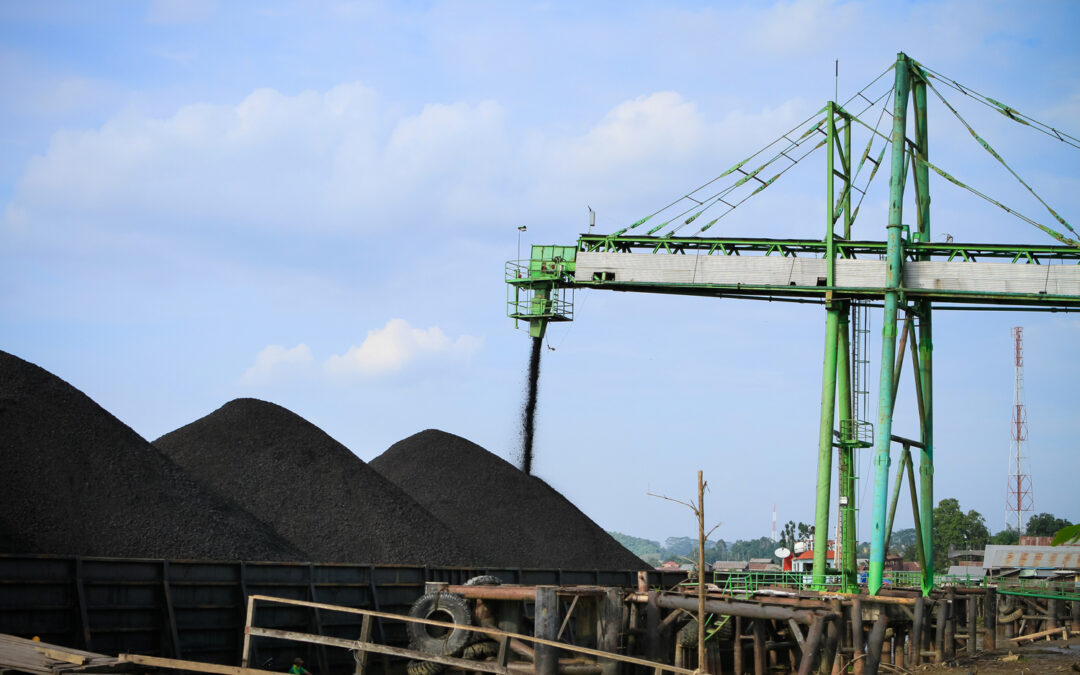The Polish government has approved plans to introduce an additional levy on excess profits made by coal companies last year as a result of prices being elevated by the energy crisis.
Under the draft legislation – which still needs to be approved by parliament – excess profits would be defined as those that exceed 120% of the average in the previous four years. Such windfalls will be taxed with a 33% “solidarity contribution”.
The new one-off levy is expected to bring in 2 billion zloty (€450 million), with the money used to finance a reduction in electricity prices for households and other sensitive entities.
“The government wants the coal companies to share their excess profits and partly finance a reduction in electricity prices for citizens,” Prime Minister Mateusz Morawiecki’s office announced yesterday following a cabinet meeting.
Dochody ze składki solidarnościowej, którą mają zapłacić duże spółki węglowe, oszacowano na 2 mld zł w 2023 r. — wynika z projektu ustawy. Podatek od zysków nadzwyczajnych ma częściowo sfinansować obniżkę cen prądu dla obywateli. https://t.co/uIIJIO6QBp
— Business Insider Polska 🇵🇱 (@BIPolska) July 11, 2023
As a result of the energy crisis triggered by Russia’s full-scale invasion of Ukraine in February 2022, some companies in the energy sector reported unusually high profits amid squeezed supply and skyrocketing prices.
In Poland, a country where around a third of households use coal for heating, some queued for days to secure coal ahead of winter.
That led many coal-mining companies in Poland, which are mostly state owned, to record record profits. JSW, the country’s largest producer of coking coal, recorded its highest-ever profit of 7.56 billion zloty (€1.69 billion), compared to an average profit of 440 million zloty over the four previous years.
Poland’s hard-coal mining companies generated over 5bn zl (€1.1bn) in profits in the first half of 2022 – compared to a loss of 1.5bn zl for the same period last year – amid rising prices stoked by Russia’s war in Ukraine https://t.co/gVKUGXSZyH
— Notes from Poland 🇵🇱 (@notesfrompoland) September 1, 2022
As well as introducing the new tax, the government has decided to raise the limit on electricity consumption covered by a price freeze that was introduced at the beginning of this year.
For most households, the limit will increase from 2,000 kilowatt-hours (kWh) to 3,000 kWh per year. For people with disabilities it will rise from 2,600 kWh to 3,600 kWh, and for large families and farmers from 3,000 kWh to 4,000 kWh per year. The new limits will already be in force this year.
“Even if an electricity consumer – even before the law’s entry into force – has exceeded the previous limit, the energy seller will bill the additional volume of energy to this consumer as an invoice adjustment,” the prime minister’s office said.
In addition, the maximum price for electricity will be reduced as of 1 October, from 785 zloty per MWh to 693 zloty per MWh for local authorities, small and medium-sized enterprises, and public utilities such as hospitals, schools, kindergartens, nurseries and care facilities for the disabled, putting them on a par with price caps for households.
Parliament has approved price caps for coal and electricity to help Poles cope with soaring energy prices.
The PM thanked opposition MPs for supporting the bills, which will provide "real help to Polish families and companies at a time of global crisis" https://t.co/O8nCPvDgMa
— Notes from Poland 🇵🇱 (@notesfrompoland) October 21, 2022
Main image credit: Parolan Harahap / flickr.com (under CC BY-NC 2.0)

Alicja Ptak is deputy editor-in-chief of Notes from Poland and a multimedia journalist. She has written for Clean Energy Wire and The Times, and she hosts her own podcast, The Warsaw Wire, on Poland’s economy and energy sector. She previously worked for Reuters.




















